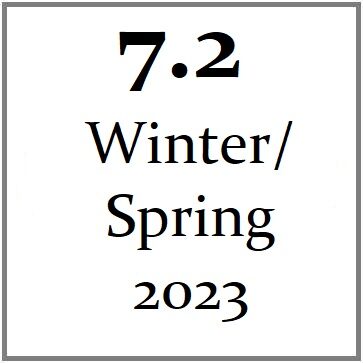Mapping as Sense-Making Practice: Embodied and Ecological Approaches to Composition Pedagogy
Claire Oldham Griffith, oldhamcl@msu.edu, Michigan State University
Jeanetta Mohlke-Hill, mohlkehi@msu.edu, Michigan State University
Transcript | Appendix: Example Assignment
In this video essay, we explore a "mapping as sense-making" methodology to help us view our experiences as teachers and students through an embodied and ecological lens. Through our process of drawing, writing, and mapping our thoughts and questions, we work to visualize the experience of "mapping as sense-making" as we orient and reorient our bodies, minds, and classrooms. We consider a layered, multimodal, and critical composition pedagogy by making connections across decolonial, queer, and feminist scholarship. The making, unmaking, and remaking of our worlds, our surroundings, and our knowledges allows us to apply our values as scholars and as humans to our teaching practices in the classroom–mapping our way into critically reimagining a more just future.
Claire Oldham Griffith is a PhD student at Michigan State University in the Department of Writing, Rhetoric, and American Cultures. She received her master’s in Technical Communication from Texas Tech University, where she did work in intercultural communication and undergraduate research. Her current research interests include cultural rhetorics, feminist practice, mapping as storytelling, issues of embodiment, and pedagogical theory. She is a graduate instructor for First Year Writing at MSU and the academic editor for the MSU College of Nursing.
Jeanetta Mohlke-Hill is a Ph.D. student at Michigan State University in the Department of Writing, Rhetoric, and American Cultures where she teaches first-year writing and is a writing center consultant. She is a former editorial assistant for constellations: a cultural rhetorics publishing space. Her research explores the intersections between place- and space-making, embodiment, craft/DIY, pedagogy, and social justice through a queer-feminist lens.
